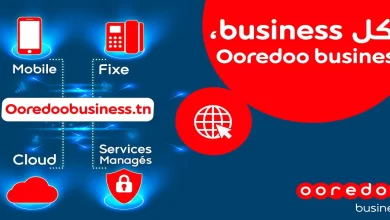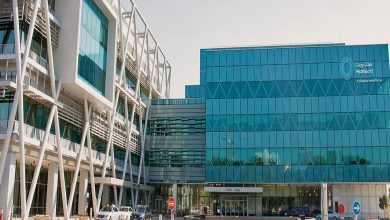Programme Policy Consultant – Pastoral Livelihoods (CST L II)

.
WFP seeks candidates of the highest integrity and professionalism who share our humanitarian principles.
Selection of staff is made on a competitive basis, and we are committed to promoting diversity and gender balance.
WORLD FOOD PROGRAMME – ETHIOPIA COUNTRY OFFICE
Position Title: Programme Policy Consultant – Pastoral Livelihoods
Contract Type: Consultant
Duty Station: Addis Ababa, Ethiopia
Duration: 11 Months
ABOUT WFP
The United Nations World Food Programme is the world's largest humanitarian agency fighting hunger worldwide. The mission of WFP is to help the world achieve Zero Hunger in our lifetimes. Every day, WFP works worldwide to ensure that no child goes to bed hungry and that the poorest and most vulnerable, particularly women and children, can access the nutritious food they need.
ORGANIZATIONAL CONTEXT
The World Food Programme (WFP) is the United Nations frontline agency in the fight against hunger. We save lives by getting food to the hungry fast. But WFP also works to help prevent hunger in the future. We do this through interventions that use food to build assets, spread knowledge and nurture stronger, more dynamic communities. This helps communities become more food secure. On average, WFP aims to bring food assistance to more than 80 million people in more than 123 countries.
In Ethiopia, WFP is working with the Government and humanitarian partners to strengthen the resilience of people, communities, and systems and to chart a more prosperous and sustainable future for the next generation. Our interventions are highly contextualized and adapted to the specific needs of our beneficiaries, including smallholder farmers, pastoralists, refugees, and host-communities who are most vulnerable to climate shocks.
WFP-supported resilience-building interventions in the drought-prone lowland areas in Ethiopia are focused on supporting vulnerable beneficiaries with an integrated climate-smart package that includes cash for work, indexed insurance, financial services, nature-based disaster risk reduction, restoration of degraded agricultural and range lands, improved access to water through watershed management, fodder production, and livelihood strengthening activities. We work with both pastoral and agropastoral beneficiaries, supporting sustainable natural resource management while enabling restoration of degraded rangelands and agriculturally productive riverine areas to increase local productivity and strengthen market systems in support of diversified, nutritious diets. We simultaneously focus on strengthening capacities of national and local institutions for improved early warning systems, gender transformation, and climate resilient diversified food systems.
JOB PURPOSE
In Ethiopia, WFP is working with the Government and humanitarian partners to strengthen the resilience of people, communities, and systems and to chart a more prosperous and sustainable future for the next generation. Our interventions are highly contextualized and adapted to the specific needs of our beneficiaries, including smallholder farmers, pastoralists, refugees, and host-communities who are most vulnerable to climate shocks.
WFP-supported resilience-building interventions in the drought-prone lowland areas in Ethiopia are focused on supporting vulnerable beneficiaries with an integrated climate-smart package that includes cash for work, indexed insurance, financial services, nature-based disaster risk reduction, restoration of degraded agricultural and range lands, improved access to water through watershed management, fodder production, and livelihood strengthening activities. We work with both pastoral and agropastoral beneficiaries, supporting sustainable natural resource management while enabling restoration of degraded rangelands and agriculturally productive riverine areas to increase local productivity and strengthen market systems in support of diversified, nutritious diets. We simultaneously focus on strengthening capacities of national and local institutions for improved early warning systems, gender transformation, and climate resilient diversified food systems.
KEY ACCOUNTABILITIES (not all-inclusive)
Under the direct supervision of the Head of the Climate Adaptation and Resilience Building (CCARB) unit at the WFP Country Office, the Programme Policy Officer (Pastoral Livelihoods) will be responsible for providing strategic guidance and operational support for the implementation of interventions aimed at strengthening (agro)pastoralist livelihoods and building resilience in Ethiopia’s drought-prone lowland areas.
Specific tasks and responsibilities will include:
- Act as a main liaison between WFP, Cooperating Partners (CPs), Government Agencies, and other relevant stakeholders to ensure adequate coordination, engagement, and knowledge transfer regarding pastoral livelihoods.
- Contribute to the translation of WFP-wide programme policies into regional/local level contexts and implementation modalities and operations.
- Provide specialized analytical expertise, technical and operational advisory support to partners and stakeholders to enable the highest possible quality in design and effectiveness of activities related to (agro)pastoralist livelihoods, ensuring integration of context relevant, evidence-based, climate-smart, environmentally, and socio-economically sustainable options that are more resilient to shocks and stressors. This will include assets creation through watershed/landscape-based approaches (e.g. rangeland rehabilitation, sustainable water harvesting and irrigation infrastructure), facilitation of fodder and crop production (e.g. using hydroponics technologies), index-based livestock insurance, and enhanced agricultural production in riverine areas through support to agropastoralist and smallholder farmers, cooperatives and agro-dealer networks for agricultural market access and linkage, financial services, and individual skills development related to diversification of livelihoods options.
4. Enable synergistic approaches with external partners and other WFP programmes including Refugees, Relief, Nutrition and supply chain interventions to maximise impact.
5. Lead and motivate a diverse team of professionals at CO and SO level, enabling the highest levels of performance through close individual monitoring and coaching where required.
6. Provide project management support to ensure adequate use of financial and human resources, and timely delivery of activities, in line with intended outcomes, following up on work planning and delivery, ensuring that any risks or bottlenecks are flagged with relevant counterparts in a timely manner, while recommending/enabling corrective measures if needed.
7. Ensure gender perspectives are incorporated in all relevant areas of work to ensure meaningful participation and empowerment of women and other marginalized groups. Ensure that cross-cutting issues, including gender perspectives, environment and social safeguards, accountability to affected populations and other relevant protection considerations are adequately mainstreamed.
8. Facilitate timely implementation of M&E activities as per WFP and donor requirements; Enable and contribute to timely analytical and critical reports, publications, and a variety of information products, concept notes and proposals for internal or external use.
9. Contribute to enhancing WFP’s leadership status in relevant forums and meetings; support engagement in the humanitarian-development-peace nexus contexts to seek entry points for context driven assets creation design and implementation, through direct participation and/or through briefings, information products and other training/guidance notes materials, as appropriate.
10. Perform other duties as assigned.
STANDARD MINIMUM QUALIFICATIONS
- Advanced University degree in agriculture, rural development, or related discipline.
- Minimum of 7 years of postgraduate relevant professional level work experience in resilience building, agriculture, livelihood strengthening, sustainable natural resource management, and/or other relevant field, demonstrating high performance.
- Solid experience in implementing resilience building and/or food for assets and/or livelihood programmes.
- Experience building and fostering strategic partnerships in coordinating resilience, food assistance for assets and livelihoods programmes with government and partners (UN, NGOs, local communities, etc.).
- At least one experience and/or field mission to support the setting up and running multi-disciplinary, resilience, assets creation or livelihoods programmes.
- Demonstrable experience working in areas relevant to (agro)pastoralist livelihood strengthening.
- Experience in programme management including design, monitoring, evaluation.
OTHER REQUIRED KNOWLEDGE AND SKILLS
Knowledge & Skills:
- Ability to communicate effectively and compellingly, orally and in writing.
- Proven capacity to initiate and lead innovation that strives for continuous improvements.
- Excellent interpersonal and leadership skills, with proven ability to build and foster inclusive teams.
- Good coordination skills, and ability to work independently in a timely manner.
- Strong motivation to make a difference and to contribute to WFP’s mandate.
- Proven effective cognitive abilities, analytical and problem-solving skills.
- Openness and passion for new experiences and multicultural environments.
Languages:
- Fluency (level C) in English.
- Intermediate knowledge of another official UN language (Arabic, Chinese, French, Russian and Spanish) and/or Portuguese (one of WFP’s working languages).
- Working knowledge of Amharic would be an advantage.
4Ps CORE ORGANISATIONAL CAPABILITIES
Purpose
- Understand and communicate the Strategic Objectives : Utilizes understanding of WFP’s Strategic Objectives to communicate linkages to team objectives and work.
- Be a force for positive change : Proactively identifies and develops new methods or improvements for self and immediate team to address work challenges within own work area.
- Make the mission inspiring to our team : Identifies opportunities to further align individual contributions with WFP’s mission of making an impact on local communities.
- Make our mission visible in everyday actions : Helps colleagues to see the link between their individual tasks and the contributions of their unit’s goals to the broader context of WFP’s mission.
People
- Look for ways to strengthen people's skills : Is able to identify, support and encourage focused on-the-job learning opportunities to address gaps between current skillsets and needed future skillsets for WFP.
- Create an inclusive culture : Recognizes the contributions of teammates, and encourages contributions from culturally different team mates to recognise the value of diversity above and beyond just including it in programming for beneficiaries.
- Be a coach & provide constructive feedback : Provides and solicits ongoing constructive feedback on strengths and development opportunities to help develop individual skills, whilst also helping others identify areas for improvement.
- Create an “I will”/”We will” spirit : Sets clear targets for self and others to focus team efforts in ambiguous situations (e.g., unprecedented issues and/or scenarios)
Performance
- Encourage innovation & creative solutions : Thinks beyond team’s conventional approaches to formulate creative methods for delivering food aid and assistance to beneficiaries.
- Focus on getting results : Maintains focus on achieving individual results in the face of obstacles such as volatile or fragile environments and/or organizational roadblocks.
- Make commitments and make good on commitments : Takes personal accountability for upholding and delivering upon team’s commitments and provides assurance to stakeholders.
- Be Decisive : Demonstrates ability to adjust to team’s plans and priorities to optimize outcomes in light of evolving directives, while also responding quickly in high-pressure environments, such as in emergency settings.
Partnership
- Connect and share across WFP units : Demonstrates an understanding of when and how to tactfully engage other units in conversations on impact, timing, or planning
- Build strong external partnerships : Networks regularly with key external partners using formal and informal opportunities to understand each partner’s unique value proposition, and to build and strengthen relationships
- Be politically agile & adaptable : Demonstrates ability to adapt engagement approach in the context of evolving partner circumstances and expectations
- Be clear about the value WFP brings to partnerships : Demonstrates ability to articulate to internal and external audiences the value that individual contributions and immediate teams bring to partnerships.
Terms and Conditions
WFP will not request payment at any stage of the recruitment process including at the offer stage. Any requests for payment should be refused and reported to local law enforcement authorities for appropriate action.
DEADLINE FOR SUBMISSION OF APPLICATIONS
4 DECEMBER 2022
.
Female applicants and qualified applicants from developing countries are especially encouraged to apply
WFP has a zero-tolerance approach to conduct such as fraud, sexual exploitation and abuse, sexual harassment, abuse of authority and discrimination. All selected candidates will be expected to adhere to WFP’s standards of conduct and will therefore undergo rigorous background verification internally or through third parties. Selected candidates will also be required to provide additional information as part of the verification exercise. Misrepresentation of information provided during the recruitment process may lead to disqualification or termination of employment




